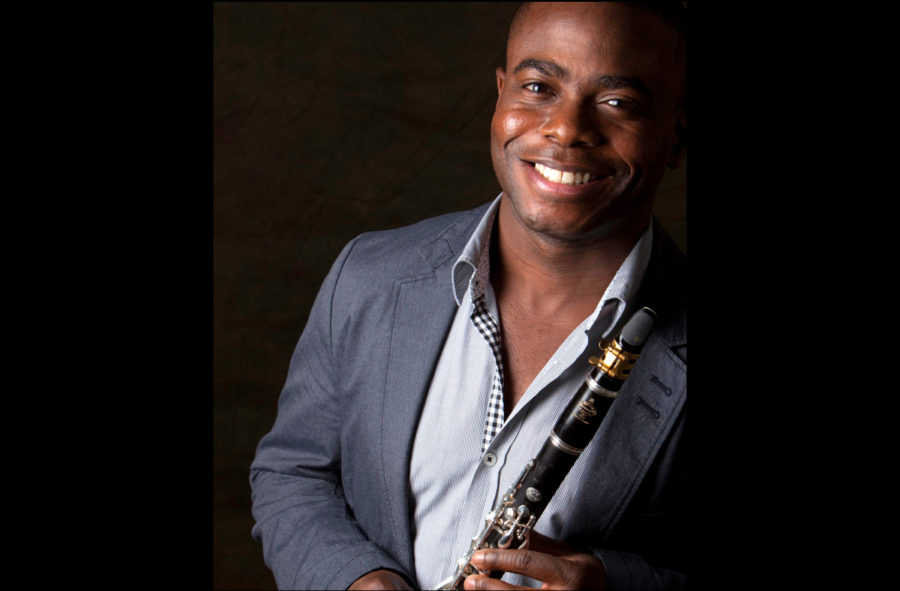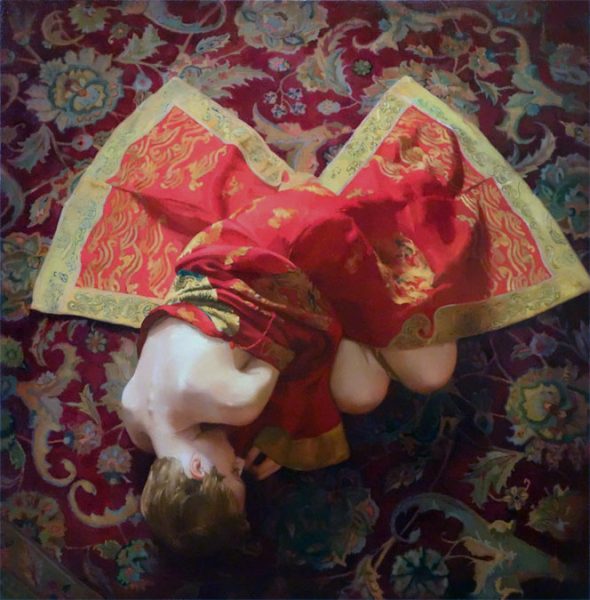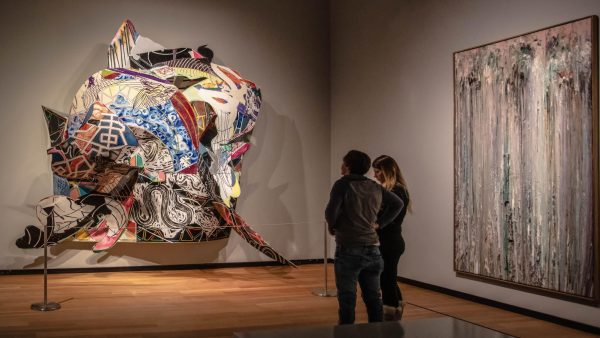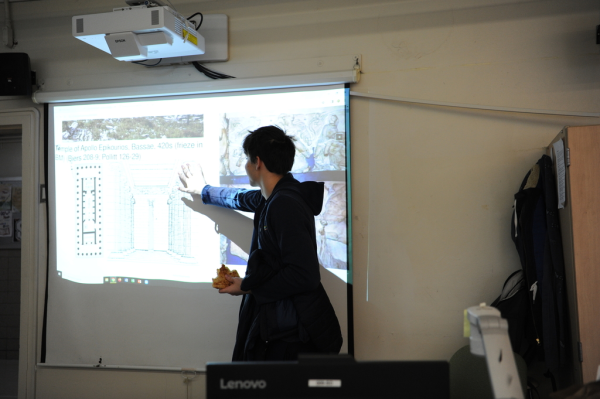Anthony McGill, the Clarinet Virtuoso Who Is Elevating Diversity and Inclusion in Classical Music
Uncover the inspiring story of Anthony McGill, the world-renowned clarinetist using his voice to shatter barriers and push for a more inclusive classical music scene, one where every voice can be heard and celebrated.
David Finlayson; used by permission of Anthony McGill
Clarinet virtuoso Anthony McGill said, “The path to success is where success lies, not in things. Then if you live your life like this, I believe you can consider yourself successful. Failure is all about inaction and negative processes.”
At the tender age of ten, I attended my first-ever master class, filled with anticipation to witness the true artistry of professional musicians. As the first participant, a boy scarcely older than me began his solo performance, I was awestruck by his virtuosic ability, the notes cascading like raindrops through his fingers. The sheer magnitude of his talent left me feeling small and inadequate in comparison. But as the professional instructor turned to the young prodigy and requested a slower rendition, my confusion only deepened. Shouldn’t music be played with vigor and speed? Yet as they harmoniously slowed the pace, I was spellbound by the resonance of each note. It was then that Anthony McGill, the instructor, uttered a phrase that would stay with me forever: “If you can practice it slowly, you’ll have everything you need to play it fast.”
His words filled me with an overwhelming sense of inspiration, that with dedication and hard work, even the most daunting of challenges were within my grasp. Since then, McGill has continued to inspire me and countless others with his teachings and performances, leaving an indelible mark on the world of music.
Anthony McGill not only stands as one of the globe’s most accomplished clarinetists, but as an impactful voice for change in the world of classical music. Born and raised in Chicago, McGill’s early exposure to music came from his parents, but it was his brother Demarre who ignited his passion for the clarinet. As McGill recalls, “My brother started playing the flute, and I wanted to be like him, so I started playing an instrument when I was nine.” This early spark led him on a journey of musical discovery and excellence, marked by an unrelenting commitment to his craft. Over the years, he has studied with numerous teachers who have had a profound influence on his development as an artist. As McGill himself acknowledges, “I studied with many teachers over the years who had great influences on me. One of the first ones was David Tuttle at the Merit School of Music. Sidney Forrest at Interlochen Arts Camp and Richard Hawkins at Interlochen Arts Academy.”
Anthony McGill’s musical journey is a symphony of remarkable accomplishments. His graduation from the illustrious Curtis Institute of Music in 2000 heralded his rise as one of the world’s most gifted clarinetists. In 2003, he was selected as principal clarinetist of the Metropolitan Opera Orchestra, a pinnacle of artistic achievement in the classical music realm. The following year, he added the distinction of principal clarinetist of the Cincinnati Symphony Orchestra, alongside his membership in the venerable Chamber Music Society of Lincoln Center.
However, McGill’s magnum opus was his appointment as principal clarinetist of the Seattle Symphony Orchestra in 2009, a role he held with distinction for five years. Yet, even as his musical career reached new heights, he remained committed to sharing his mastery with aspiring musicians. As an artist-in-residence at the University of Washington School of Music, McGill championed his teaching philosophy, stating, “I believe in giving students the skills they need to practice and succeed on their own. I believe in giving them the confidence to do so. I also want to emphasize that they are the artist and I’m there for them. Also that the student has the gifts and I help them learn how to use them.”
Anthony McGill is a master of the clarinet, endowed with the gift of imbuing profound emotional resonance and crystalline musical ideas into his performances. His tone is characterized by a luxurious, velvety timbre that reverberates with his audiences, and he shapes his phrases with exquisite sensitivity and nuance. One is left in awe by McGill’s awe-inspiring technique, allowing him to navigate complex passages with fluidity and precision. His intonation is a marvel, consistently spot-on, rendering his playing an absolute delight to the ear. As a soloist, McGill is a virtuoso of evocative expressions, with each of his interpretations brimming with thoughtful and multi-layered nuances, infusing even the most familiar works with captivating surprises.
Among his favorite pieces is the Copland Clarinet Concerto, a composition he delivers with unparalleled depth and musical insight. McGill’s repertoire spans across the classical, romantic, and contemporary periods, with his recordings featuring notable works such as the Mozart and Nielsen clarinet concertos, as well as compositions by Debussy, Copland, and Bernstein. His profound understanding of each composition’s musical structure and context enables him to create interpretations that are both compelling and engaging, resonating with audiences. In addition to his technical prowess and musicality, McGill is an ardent advocate of expanding the clarinet repertoire, commissioning and premiering numerous works by contemporary composers, including Richard Danielpour, Jennifer Higdon, and Joel Thompson. As a professional with a stage-to-stage schedule, McGill shares his performance rituals: “I believe in positive self-talk, centering and breathing, and practice. Mental preparation is key. We have to train our minds to imagine the performance before it happens. Preparation on the instrument is also vital, so you can be confident that you did all the work to get where you are.”
The New York Philharmonic is steeped in a racial legacy that mirrors the broader history of classical music in the United States. The orchestra’s inception in 1842 corresponded to a time when the enchanting melodies of classical music were predominantly enjoyed by affluent white Americans. For a protracted period, the Philharmonic acted as a vanguard of white privilege, with musicians of color rarely occupying noteworthy positions within its ranks. It was not until 1969 that the Philharmonic appointed its first African American instrumentalist, Sanford Allen, to the violin section.
While the orchestra has endeavored to increase diversity and inclusion, including the appointment of Anthony McGill as its first African American principal player in 2014, there remains a pressing need to dismantle the systemic barriers that impede people of color from accessing classical music education and careers in orchestral performance. The Philharmonic, along with other orchestras and institutions, continues to grapple with issues of representation, inclusion, and equity in the classical music sphere.
As a virtuoso musician, Anthony McGill views success as the ability to establish goals and tenaciously pursue them. “That includes the process of working toward goals,” he asserts. McGill’s induction as the principal clarinetist of the New York Philharmonic in 2014 represented yet another captivating twist in his career, serving as a poignant reminder of the exigency for greater diversity in classical music. In an interview with The New York Times, McGill emphasized the significance of representation and its ability to inspire young musicians of color to pursue their aspirations. Since joining the Philharmonic, he has performed under the baton of the most preeminent conductors of our time, utilizing his masterful artistry and consummate musicianship to enthrall audiences as a soloist.
Additionally, he has remained devoted to education and outreach, participating in the Philharmonic’s educational initiatives, and performing in schools and community centers, inspiring the next generation of musicians. Through his influential platform, McGill has staunchly advocated for greater diversity and inclusion in classical music and has motivated countless young musicians to follow their dreams. His indelible imprint on the classical music world is destined to endure for years to come as he continues to enthrall audiences with his artistry beyond the Philharmonic.
Amidst the relentless surge of the coronavirus pandemic, the New York Philharmonic, like numerous other musical ensembles across the globe, was forced to suspend operations in March 2020. Despite the myriad of challenges presented by the pandemic, Anthony McGill remained a visible presence and an unrelenting advocate for racial justice in the aftermath of George Floyd’s tragic demise. In a video posted on social media on May 27, 2020, McGill’s clarinet resonated with a poignant rendition of “America the Beautiful” in a minor key, culminating with him sinking to his knees as a tribute to Colin Kaepernick’s protests against police brutality. Motivated by a fierce desire to inspire action, McGill exhorted fellow classical musicians to join his protest by using the hashtag #TakeTwoKnees. The music virtuoso’s act of solidarity was widely praised, attracting national attention and leading to interviews with several news outlets.
A few months later, McGill was among nine distinguished Black musicians approached by The New York Times to share their perspectives on transforming the white-dominated world of classical music. In his response, he emphasized the urgent need for increased representation of people of color in orchestras, diversity in programming, and fair compensation for musicians.
Anthony McGill’s work at the Juilliard Music Advancement Program is an exceptional illustration of his devotion to propelling music education and offering possibilities for emerging musicians. As the Artistic Director of the program, McGill has meticulously crafted an all-encompassing curriculum that bestows thorough and arduous training in classical music performance, music theory, ear training, and music history upon gifted students from marginalized communities in New York City. The Juilliard Music Advancement Program (MAP) serves as a platform for recognizing and nurturing extraordinary musical talent among students hailing from underrepresented backgrounds in the New York City area. By means of this program, students are granted entry to world-class instruction and performance opportunities that are typically beyond their reach, obstructed by financial and societal barriers.
McGill’s stewardship at MAP has played an instrumental role in building an amicable and inclusive milieu that enables students to cultivate their skills and achieve their full potential. He has masterfully implemented a comprehensive curriculum that supplies students with a well-rounded musical education and equips them with the necessary tools to pursue a career in music. The program’s faculty comprises seasoned musicians and educators who work hand-in-hand with students to refine their technique, hone their musicality, and augment their performance skills. Furthermore, McGill is an active participant in teaching and mentoring students, and is intent on sharing his acumen and experience to stimulate and guide the future generation of musicians.
Under McGill’s guidance, MAP has broadened its horizons by extending its outreach efforts to engage with the wider community, providing students with occasions to perform in public venues and connect with audiences. Furthermore, McGill has tirelessly endeavored to establish partnerships with other educational institutions and cultural organizations, extending the program’s influence and impact beyond its original sphere. McGill’s unwavering commitment to advancing diversity and inclusion in classical music is a hallmark of his work at MAP. He has been a vocal advocate for increasing the representation of musicians from diverse backgrounds, working tirelessly to create a program that provides opportunities for students who might not otherwise have access to music education. McGill said, “I believe that Classical music has been slow to move forward. I hope that in the present and future, the community becomes more aware of the problems that have caused discrimination and lack of progress and that people will be open to different voices. I think the community still has to develop a culture of inclusion where all are welcome, a place where diversity is synonymous with excellence and beauty.”
“I believe that Classical music has been slow to move forward. I hope that in the present and future, the community becomes more aware of the problems that have caused discrimination and lack of progress and that people will be open to different voices. I think the community still has to develop a culture of inclusion where all are welcome, a place where diversity is synonymous with excellence and beauty,” said Anthony McGill.
Bianca Quddus is a Managing Editor and Advisory Editor for ‘The Science Survey’ who enjoys writing about culture and the arts. The aspect that she...











